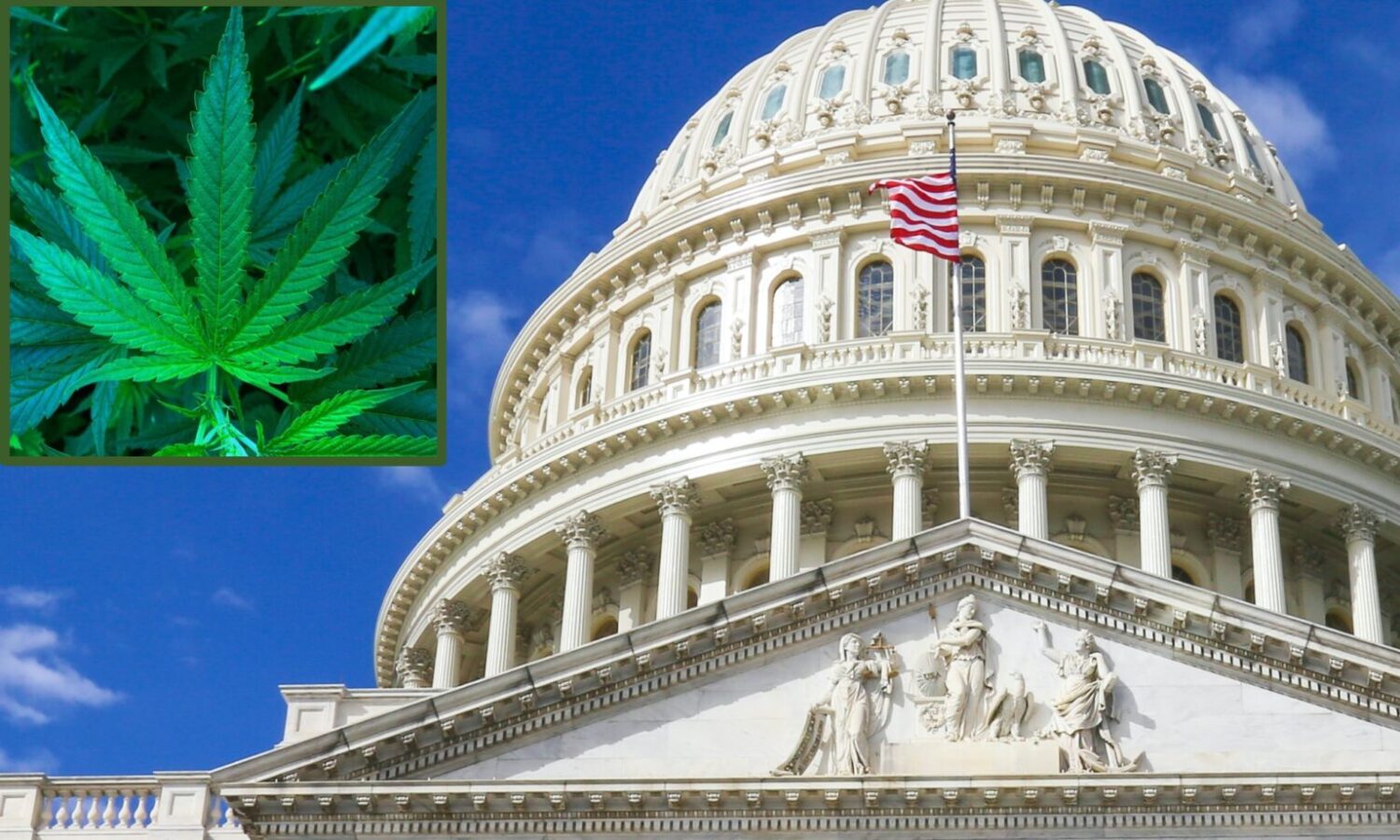Bicameral congressional leaders have released a spending package that contains a number of marijuana-related items—including bill provisions preserving protections for state medical cannabis programs and report language that calls for the federal government to study state legalization laws and expand scientists’ access to commercially available cannabis for research.
The legislation covering Fiscal Year 2024 was posted on Sunday by the House and Senate Appropriations Committees, with bipartisan legislators aiming to pass the package this week before the latest continuing resolution providing funding for several federal agencies expires at midnight on Friday.
The section of the legislation covering Commerce, Justice, Science, and Related Agencies (CJS) would maintain a longstanding rider that prevents the Justice Department from using its funding to interfere in the implementation of state medical marijuana programs. While there have been efforts to expand those protections to adult-use cannabis laws, the bicameral agreement limits it to medical marijuana.
“SEC. 531. None of the funds made available under this Act to the Department of Justice may be used, with respect to any of the States of Alabama, Alaska, Arizona, Arkansas, California, Colorado, Connecticut, Delaware, Florida, Georgia, Hawaii, Illinois, Indiana, Iowa, Kentucky, Louisiana, Maine, Maryland, Massachusetts, Michigan, Minnesota, Mississippi, Missouri, Montana, Nevada, New Hampshire, New Jersey, New Mexico, New York, North Carolina, North Dakota, Ohio, Oklahoma, Oregon, Pennsylvania, Rhode Island, South Carolina, South Dakota, Tennessee, Texas, Utah, Vermont, Virginia, Washington, West Virginia, Wisconsin, and Wyoming, or with respect to the District of Columbia, the Commonwealth of the Northern Mariana Islands, the United States Virgin Islands, Guam, or Puerto Rico, to prevent any of them from implementing their own laws that authorize the use, distribution, possession, or cultivation of medical marijuana.”
The report attached to the CJS measure contains a section urging DOJ to work with the Department of the Treasury, Alcohol and Tobacco Tax and Trade Bureau and other agencies with “relevant regulatory expertise” to assess the “adequacy of State marijuana regulatory frameworks, including commonalities and novel approaches to enforcement and oversight.”
“State Regulatory Frameworks.—The agreement urges the Department, in coordination with the Department of the Treasury, Alcohol and Tobacco Tax and Trade Bureau, and other agencies which may have relevant regulatory expertise, to coordinate an assessment of the adequacy of State marijuana regulatory frameworks, including commonalities and novel approaches to enforcement and oversight.”
Another section of the report for the CJS spending bill calls for an update on the department’s “progress toward expanded researcher access to samples and strains of marijuana for scientific research on marijuana-impaired driving.” The update would need to be submitted to appropriations committees within 60 days of the measure’s enactment.
“Update on Required Agency Research.—Consistent with the directive contained under this heading in House Report 117-395, as adopted by Public Law 117-328, the agreement directs the Department to update the Committees on the progress toward expanded researcher access to samples and strains of marijuana for scientific research on marijuana-impaired driving. The agreement expects the Department to provide the briefing to the Committees, no later than 60 days after the enactment of this act, and in advance of the publication of the report, and recommendations required by Public Law 117-58.”
Additionally, the report would encourage the National Science Foundation (NSF) to promote research “exploring domestically grown hemp as a robust plastic alternative to reduce the domestic reliance on Chinese-made plastics.”
“Reducing Reliance on Chinese-made Plastics.—The agreement encourages NSF to support research exploring domestically grown hemp as a robust plastic alternative to reduce the domestic reliance on Chinese-made plastics and directs NSF to report to the Committees on best practices for facilitating the cost-efficient use of plastic alternatives in government produced or funded materials.”
The CJS measure and the appropriations bill for Agriculture, Rural Development, Food and Drug Administration, and Related Agencies, both contain sections that would prevent federal interference in state hemp programs.
SEC. 530. None of the funds made available by this Act may be used in contravention of section 7606 (‘‘Legitimacy of Industrial Hemp Research’’) of the Agricultural Act of 2014 (Public Law 113–79) by the Department of Justice or the Drug Enforcement Administration.
…
SEC. 740. None of the funds made available by this Act or any other Act may be used—
(1) in contravention of section 7606 of the Agricultural Act of 2014 (7 U.S.C. 5940), subtitle G of the Agricultural Marketing Act of 1946, or section 10114 of the Agriculture Improvement Act of 2018; or
(2) to prohibit the transportation, processing, sale, or use of hemp, or seeds of such plant, that is grown or cultivated in accordance with section 7606 of the Agricultural Act of 2014 or subtitle G of the Agricultural Marketing Act of 1946, within or outside the State in which the hemp is grown or cultivated.
Whether the divided Congress will be successful in passing the spending package is yet to be seen, but what seems clear is that there was an unwillingness to pursue language that would build upon existing reforms that have been historically attached through the appropriations process. (Full Story)

